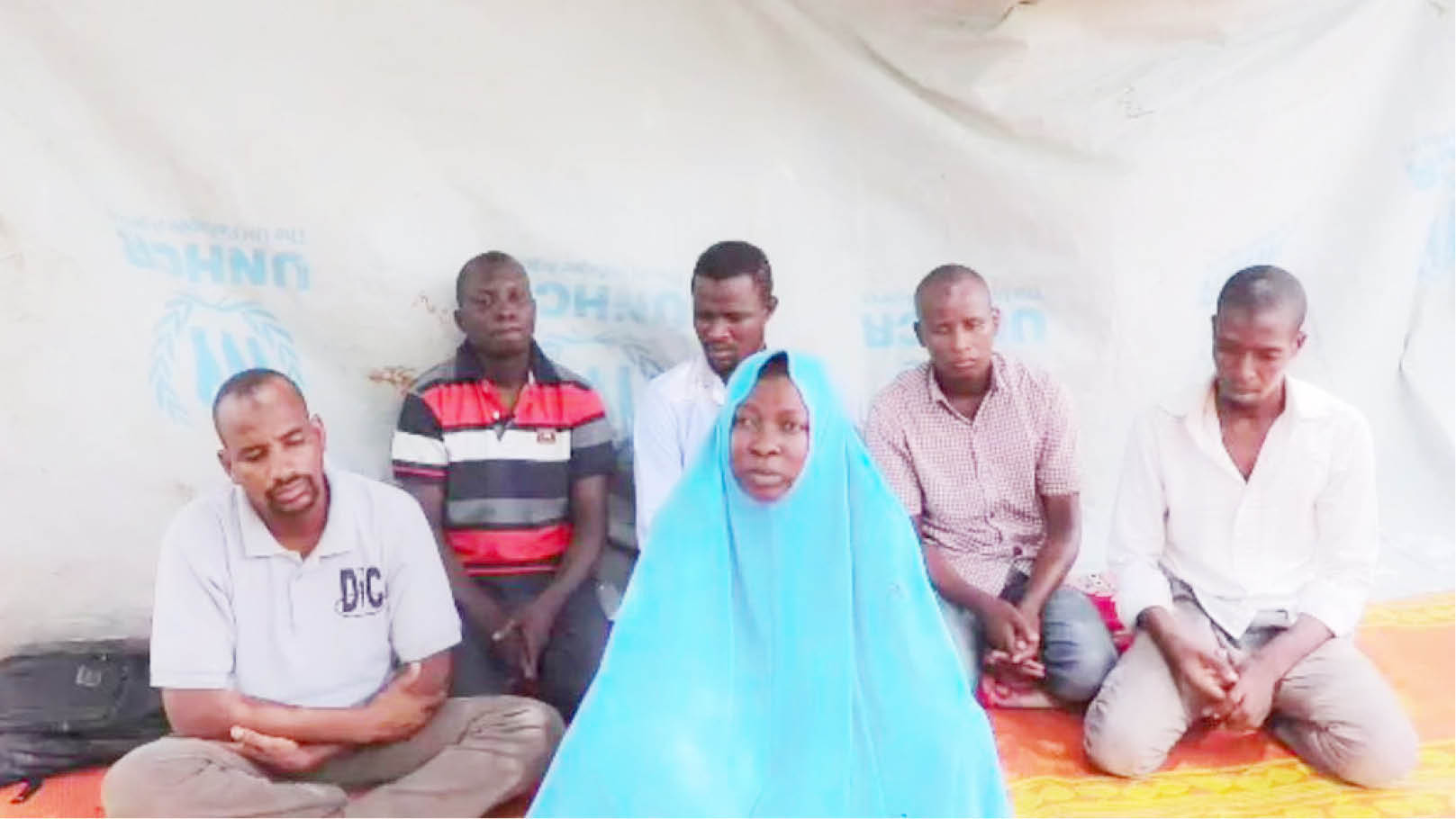Humanitarian Day: World stands, mourns aid workers
Wednesday, August 19, was the UN World Humanitarian Day. In Nigeria, where several aid workers have been killed by Boko Haram while providing relief for displaced persons, it was a sober day. In the last one year, Boko Haram or affiliated groups have killed 10 humanitarian workers in Nigeria and condemned one to slavery after […]

A group of kidnapped aid workers who were taken by Boko Haram
Wednesday, August 19, was the UN World Humanitarian Day. In Nigeria, where several aid workers have been killed by Boko Haram while providing relief for displaced persons, it was a sober day.
In the last one year, Boko Haram or affiliated groups have killed 10 humanitarian workers in Nigeria and condemned one to slavery after the window for negotiation closed.
- Buhari condemns killing of 5 aid workers in Borno
- Aid workers’ execution: Zulum wants ideas to combat insurgency
To commemorate the sacrifices of humanitarian workers worldwide, the United Nations General Assembly set aside August 19 as World Humanitarian Day globally.
The day focuses on increasing public awareness about humanitarian services worldwide, pay tribute to aid workers who risk their lives and to rally support for people affected by crises around the world. It was first marked in Nigeria in 2012.
In the north-eastern states of Borno, Adamawa and Yobe, increasing attacks on humanitarian workers providing care for the millions displaced by the Boko Haram crisis are becoming alarming.
In 2019, Action Against Hunger (AAH) announced the abduction of five of its humanitarian workers by Boko Haram in northern Borno State. The driver of the party was killed on the spot when the convoy heading to Damasak, Mobbar Local Government Area, was attacked, according to former Country Director of the AAH, Shashwat Saraf.
Sadly, on December 13, ISWAP executed four of these aid workers and released a video of their killing. The only female amongst them, Grace Taku, according to ISWAP, is condemned to a life of slavery.
Seven months later, seven more aid workers were abducted along the Maiduguri-Manguno Highway by suspected ISWAP fighters. The terror group would release a video two weeks later in which five humanitarian workers and a staff of the State Emergency Management Agency, Action Against Hunger, Rich International/ACTED, International Rescue Committee and security guards appealed for rescue. By July 22, all of them were executed.
This followed an earlier attack on a UN helicopter, in which two persons and a child lost their lives.
The attack on the helicopter of the United Nations Humanitarian Air Services led to the suspension of air services in the affected area. The UN had expressed grave concerns over the attacks.
The crucial role of humanitarian workers is highlighted by an OCHA data that shows that the humanitarian community in the northeast provided life-saving support to 5.2 million people in 2019.
Since January 2020, 2.6 million people have been reached through various programmes by this community.
“A few years ago, our rapid joint mobilisation succeeded in reversing a situation where hundreds of thousands of people were on the verge of famine,” UN resident coordinator, Edward Kallon said.
“Not only was famine averted, but many people who had seen their lives shattered by the conflict were starting to rebuild their lives and communities. There were hopes that we had turned a corner and we could start focusing on recovery and development. Today, these hard-won gains are in jeopardy.”
He would go on to speak directly of the attack on aid workers, saying, “I have been shocked, saddened and outraged by the brutal attacks targeting civilians, including aid workers, in recent weeks.”
President Muhammadu Buhari on the 21st of August 2019 President Muhammadu Buhari created The Ministry of Humanitarian Affairs, Disaster Management and Social Development as well as funded the take-off of the Northeast Development Commission saddled with the responsibility of providing humanitarian assistance and development in terms of reconstruction.
This year’s WHD is unique because it coincides with activities to mark the first anniversary of the creation of the ministry, which provides a platform to further drive the message of importance Nigeria attaches to humanitarian responses as well as its commitment to ensuring a coordinated approach geared towards delivering as one.
The Ministry under the watch of Hajiya Sadiya Umaru Farouk has provided support to thousands of victims of a fire disaster in some displaced person camps as well as flood disaster in the BAY states, monthly food distribution to hundreds of thousands of households in the host community.
With 1. 9 million people still displaced from the crisis in the northeast, the Borno State Governor, Prof Babagana Zulum in the last one years has toured all 27 local government areas of the state to distribute relief items.
Efforts to relocate displaced persons are shaky considering that more villagers have fled their homes due to incessant attacks by the insurgent especially in the northern part of the state.
The governor believes relocation is only feasible when the insurgents have been dealt with and believe more needs to be done to protect civilians.
After a decade of conflict, the humanitarian situation remains daunting with billions of dollars claimed to have been spent on displaced persons, the destitute, hunger, malnutrition, lack of shelter and food insecurity. Much more needs to be done to justify the huge spending on displaced persons.
With several UN agencies and 54 INGOs spread across 65 LGAs across the northeast, with more than 150 projects delivering humanitarian assistance, the insecurity in the region means that the situation is not likely to come under control soon.
With the number of humanitarian workers killed in Nigeria recently, the theme for today’s World Humanitarian Day, #RealLifeHeroes, seems to speak directly to the memory of these heroes. It is a small way to remember the lives they have touched in these difficult times.
